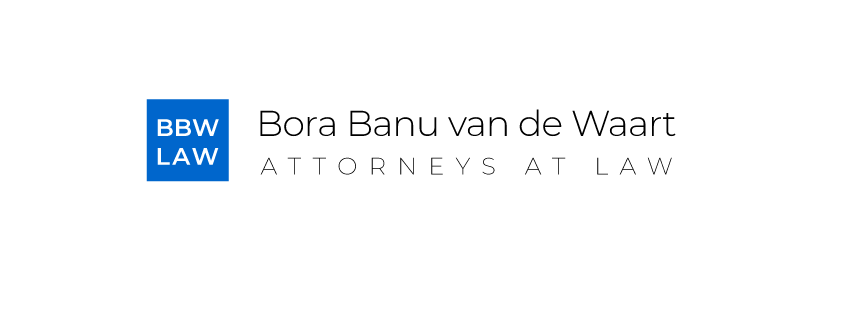Legal News by BBW LAW, May 2022
Tue | 10.05.2022
Legal
LEGAL NEWS
1. Mobility / Labour Law
Change of the delegation and secondment allowance, including the allowance specific to transnational secondment under Law 72/2022. Thus, although the level of up to 2.5 times the level of allowance set for staff of public authorities was maintained, the allowance was capped at 3 basic salaries.
Thus, starting May 2022, this allowance is deductible if it is not more than:
(i) in Romania, 2.5 times the legal level set for the allowance, by Government decision, for staff of public authorities and institutions, but within the limit of 3 basic salaries corresponding to the position held;
(ii) abroad, 2.5 times the legal level established for daily subsistence allowance, by Government decision, for Romanian staff sent abroad for temporary assignments, within the limit of 3 basic salaries corresponding to the position held.
The ceiling for the value of 3 basic salaries corresponding to the position held is calculated by dividing the 3 salaries by the number of working days in the concerned month, and the result is multiplied by the number of days of the period of delegation/secondment/work in another city, in Romania or abroad.
2. Public Procurement, Price adjustment of public procurement contracts/sectoral contracts/concession contracts/framework agreements
On 14 April 2022, Government Emergency Ordinance no. 47 was approved, regarding the Price adjustment of public procurement contracts/sectoral contracts/concession contracts/framework agreements in order to create the legal framework for the price adjustment of public procurement contracts, not only for works, but also for products relating to fitting and/or technological and functional machinery and equipment necessary carry out the works and, respectively, to put them into operation and/or intended for the specific equipment and fitting of investment objectives/projects/current maintenance and repair works and for design services for transport infrastructure of national interest.
Government Emergency Ordinance no. 47 lists the contracts to which the adjustment applies, the method of adjustment and the procedure to be followed by the contracting companies in order to benefit from the adjustment granted.
3. Unfair trading practices in agricultural and food field
Law 81/2022 transposes Directive (EU) 2019/633 of the European Parliament and of the Council of 17 April 2019 on unfair trading practices in business-to-business relationships in the agricultural and food supply chain.
Objective: business-to-business relationships between suppliers and buyers in the supply chain, on unfair trading practices which occur in relation to sales of agricultural and/or food products, related to sales that have effect on Romanian territory, irrespective of the place where these took place, respectively of the services provided by the buyer to the supplier.
Law 81//2022 lists the unfair trading practices that are prohibited, the exceptions and the applicable sanctions.
LEGAL INSIGHTS
Foreign Direct Investment by non-EU investors – screening mechanism and clearance
Emergency Government Ordinance No. 46/2022 (FDI Law) implementing the Regulation (EU) 2019/452 of 19 March establishing a framework for the screening of foreign direct investments (FDI Regulation) into the Union was officially published on 18 April 2022.
According to the FDI Regulation, all Member States have to adopt mechanisms
to screen foreign direct investments (FDI) in their territory on the grounds of security or public order, taking into account the comments of other Member States to such FDI pursuant to the FDI Regulation, as well as the opinions of the European Commission.
Our Legal Insight will give you a brief overview of the mechanism to screen FDI in Romania as regulated by FDI Law.
I. FDI subject to the screen mechanism and to clearance requirements before their implementation
FDI / new investments subject to the screen mechanism and clearance requirements are those complying with the following conditions:
- FDI by a foreign investor or new investments as defined by the FDI Law, and
- FDI in certain sensitive sectors – provided in the decision of the National Defence Supreme Council no. 73 / 2012, and
- FDI having a value exceeding EUR 2 million. The FDI screening mechanism can occur even for transactions below this value, if they are likely to trigger potential risks for or effects on homeland security or public order.
Definition of FDI and new investments
FDI = an investment of any kind by a foreign investor, including investments which enable effective participation in the management or control. An FDI consists also in a change of control if the control is undertaken by a foreign investor.
Foreign investor = a natural person of a third country or an undertaking of a third country or an European based company controlled by a natural person / undertaking of third country.
The screen mechanism also applies to new investments = greenfield investments, investments for the extension of the current capacity productions, diversification of the production or for significant changes to the current production processes.
Sensitive sectors include the following:
- security of citizens and communities;
- border security;
- energy;
- transport;
- supply of vital resources;
- critical infrastructure;
- IT and communication systems;
- financial, tax, banking, and insurance activities;
- weapons, munitions, explosives, toxic substances manufacturing and circulation;
- industrial security;
- protection against disasters;
- protection of agriculture and environment;
- protection of State funded companies or of their management during privatisation.
Special transparency rules are foreseen for investments in media companies (i) with audio-visual licences or that (ii) produce a regular publication with an average of at least 5,000 printed copies/day in the last calendar year or that (iii) hold a web portal with a minimum of 10,000 views/month. Such investments will be subject to a public consultation process of at least 30 calendar days.
II. Competent Authorities
- The FDI Screening Commission (Comisia pentru examinarea investiţiilor străine directe CEISD in Romanian) – to perform the substantive review and issue the clearance notice (aviz in Romanian)
The FDI Screening Commission will be formally set up within 30 days as of publication of the FDI Law and should become operational within 60 days.
The FDI Screening Commission will be directly subordinated to the Romanian Government. It will consist of representatives of the Prime Minister, the Romanian Competition Council and representatives of other ministries. Representatives of the Romanian Intelligence Bureau and Foreign Intelligence Bureau will be permanent invitees to the FDI Screening Commission.
- Competition Council – to issue the final decision when the FDI Screening Commission issues a non-conditional clearance notice, to apply the fines, to have clerical functions for FDI Screening Commission
At the same time, the FDI Law sets out that the Competition Council might make a referral to the FDI Screening Commission when receiving a merger control filing to check if further screening is necessary or not.
- Romanian Government – to issue the final decision when the FDI Screening Commission issues a conditional clearance notice or rejects the file
- National Defence Supreme Council – to issue opinions on certain files having sensitive and important risks in relation with homeland security and public order
- European Commission – to issue opinions – If the FDI is likely to affect projects or programmes of interest to the European Union.
III. Screening mechanism
The FDI filings will be submitted with the Competition Council, having clerical functions for the FDI Screening Commission.
In determining whether a foreign direct investment is likely to affect security or public order, the FDI Screening Commission may consider its potential effects on, inter alia: critical infrastructure, critical technologies and dual use items, supply of critical inputs, access to sensitive information, including personal data, or the ability to control such information, or the freedom and pluralism of the media. On the same time, the FDI Screening Commission will check
- whether the foreign investor is directly or indirectly controlled by the government, including State bodies or armed forces, of a third country,
- whether the foreign investor has already been involved in activities affecting security or public order in a Member State; or
- whether there is a serious risk that the foreign investor engages in illegal or criminal activities.
Based on its review, the FDI Screening Commission may issue:
- a non-conditional clearance binding notice; the final decision shall be issued by the Competition Council;
- a conditional clearance consultative notice, subject to behavioural or structural commitments or measures; the final decision shall be issued by the Romanian Government;
- a rejection consultative notice, the final decision shall be issued by the Romanian Government.
IV. Sanctions and fines
The FDI Law sets out pecuniary sanctions up to 10 % of the total worldwide turnover for (i) procedural gun-jumping, (ii) providing inaccurate or misleading information or (iii) failure to observe the commitments set in a conditional clearance decision. The competent authority for applying the sanctions is Competition Council.
In the case of enterprises newly established as a result of foreign direct investment, which have not earned a turnover in the year preceding the sanction, these will be sanctioned with a fine between EUR 2 Million (RON 10,000,000) and EUR 10 Million (RON 50,000,000).
V. Transitory regime
The new regime came into force on 18 April 2022. However, the FDI Screening Commission has not been set up. The FDI Law applies to all “ongoing transactions”, including investments in relation to which the parties announced their intention to conclude an agreement. The transactions occurring during the interim period, i.e. until the FDI Screening Commission shall be set up, should be notified to the Competition Council for the attention of the former review authority.
Disclaimer: The information provided herein is in no way exhaustive and does not, and is not intended to, constitute legal advice. Readers of this Article should contact their attorney to obtain advice with respect to any particular legal matter.
This article is provided by our Legal Partner BBW LAW l BORA BANU van de WAART.
2025
-
November (1)
-
October (1)
-
September (1)
-
July (1)
-
June (1)
-
April (1)
-
February (2)
-
January (1)
2024
-
November (1)
-
October (1)
-
July (1)
-
May (1)
-
March (1)
-
February (1)
-
January (1)
2023
-
November (1)
-
September (2)
-
August (2)
-
June (1)
-
May (1)
-
April (2)
-
March (1)
-
February (2)
-
January (2)
2022
-
December (3)
-
November (4)
-
October (3)
-
September (4)
-
August (3)
-
July (6)
-
June (4)
-
May (4)
-
April (8)
- Marketing News by diARK - April 2022
- Finance News by Mazars Romania - April 2022
- Experience the Perfect Chauffeur Transfer with David Intercar
- Mobility News by Business Lease - April 2022
- NRCC MEMBER IN SPOTLIGHT, WOLTERS KLUWER
- Crowe Romania and DeclaratiaUnica.ro engage in the automation of the single return form and the offering of personalized consultancy
- Cryptocurrency News by Bitcoin Romania, April 2022
- Legal News by BBW LAW - April 2022
-
March (6)
-
February (4)
-
January (5)
2021
-
December (3)
-
November (4)
-
October (2)
-
September (2)
-
August (1)
-
July (5)
-
June (3)
-
May (5)
-
April (4)
-
March (7)
- Cryptocurrency News by Bitcoin Romania, April 2021
- HR News by CNA International Executive Search Romania, March
- Real Estate News by CTP Invest, March 2021
- Sale-Purchase of Agricultural Land Located Outside Build-Up Areas
- MEET THE NRCC BOARD CANDIDATES 2021
- Fleet Management – Complete Makeover or Small Adjustments?
- Cryptocurrency News by Bitcoin Romania, March 2021
-
February (5)
-
January (6)
2020
-
December (2)
-
October (2)
-
September (3)
-
August (2)
-
July (6)
- NRCC Member in Spotlight Interview - Autonom
- Insolvency Proceedings: New Rules
- Member in Spotlight, UniCredit Bank
- Financing opportunities overview for large enterprises, SMEs and other organizations
- Companies: Simplification of Formalities
- Call for Leaders | What is your readiness score to benefit from the EU SURE initiative?
-
June (5)
-
May (8)
- The State of Alert. New rules for the collective proceedings
- The Retail Industry
- EU grants up to 6 Mil Euro for SME-s investment projects
- Member in spotlight, Heisterkamp Transportation Solutions
- State of Alert...What Is New
- The forced transformation of the automotive industry – Mazars analysis
- State of Alert in Romania
- Reducing the Impact of the Pandemic
-
April (6)
-
March (2)
2019
-
November (2)
-
July (1)
-
June (1)
-
March (2)
-
January (1)
2018
-
October (2)
-
September (1)
-
August (1)
-
July (3)
-
June (2)
-
May (1)
-
April (1)
-
March (3)
-
February (13)
- NRCC Elections 2018 - Elena Badea
- NRCC Elections 2018 - Loreda Dragomir
- NRCC Elections 2018 - Simina Fodor
- NRCC Elections 2018 - Manuel Herraiz Orti
- NRCC Elections 2018 - Tom Leene
- NRCC Elections 2018 - Mircea Moga
- NRCC Elections 2018 - Ronald Oort
- NRCC Elections 2018 - Razvan Pascu
- NRCC Elections 2018 - Alexandru Popescu
- NRCC Elections 2018 - Mihaela Tudor
- NRCC Elections 2018 - Loredana Van de Waart
- NRCC Elections 2018 - Edwin Warmerdam
- NRCC Elections 2018 - Philip Aarsman
2017
-
November (1)
-
September (1)
-
August (2)
-
May (1)
-
April (2)
-
March (1)
2016
-
November (1)
-
September (8)
-
June (1)
-
February (2)








